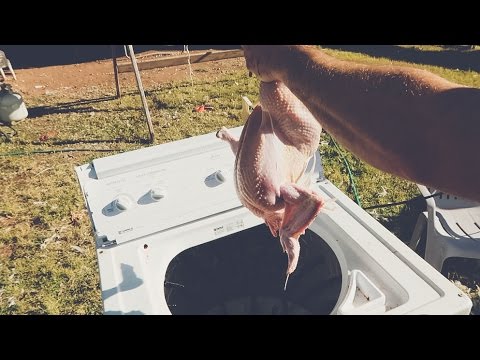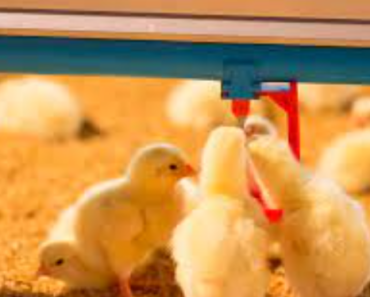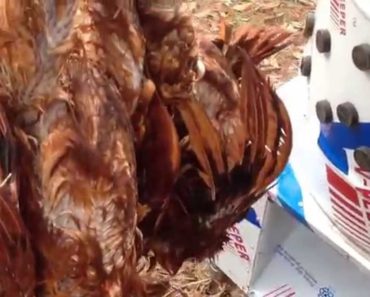Contents
- 1 Common Chicken Health Problems: Identifying and Preventing Issues in Your Flock
- 2 Common Chicken Health Problems
- 3 Treatment and Prevention of Respiratory Issues
- 4 Parasites and Diseases Affecting Chickens
- 5 Treatment and Prevention of External Parasites
- 6 Treatment and Prevention of Internal Parasites
- 7 FAQ

Introducing my blog post on chicken health problems. Discover the essential information every chicken owner needs to know about maintaining the wellbeing of their flock. From common illnesses to preventive measures, this comprehensive guide will empower you to keep your chickens healthy and thriving. Stay tuned for expert tips and insights!
Common Chicken Health Problems: Identifying and Preventing Issues in Your Flock
Common Chicken Health Problems: Identifying and Preventing Issues in Your Flock.
Keeping a healthy flock of chickens is essential for successful chicken farming. Understanding common chicken health problems and knowing how to identify and prevent them is crucial in maintaining the well-being of your birds. This article will discuss some of the most prevalent health issues that chickens may encounter.
1. Respiratory Infections:
Respiratory infections are a common health problem in chickens and can be caused by various pathogens, including bacteria, viruses, and fungi. Symptoms include sneezing, coughing, nasal discharge, and difficulty breathing. Proper ventilation, biosecurity measures, and vaccination can help prevent respiratory infections in your flock.
2. External Parasites:
External parasites, such as mites, lice, and fleas, can cause discomfort and harm to your chickens. Regularly inspecting your birds for signs of infestation, providing proper coop cleanliness, and using appropriate treatments are essential in preventing and controlling external parasites.
3. Internal Parasites:
Internal parasites, such as worms, can negatively impact the health of your chickens and reduce egg production. Routine fecal testing and deworming protocols are vital in preventing and managing internal parasites in your flock.
4. Egg Laying Issues:
Egg laying problems can occur due to various factors, including stress, poor nutrition, age, or underlying health issues. Monitoring your hens’ egg production, providing a balanced diet, and ensuring optimal environmental conditions can help prevent egg laying issues.
5. Nutritional Deficiencies:
A well-balanced diet is crucial for optimal chicken health. Nutritional deficiencies can lead to various health problems, such as weak bones, feather abnormalities, and poor egg quality. Providing a diverse and nutrient-rich diet, supplemented with appropriate vitamins and minerals, is essential in preventing nutritional deficiencies.
6. Heat Stress:
Chickens are susceptible to heat stress, especially during hot summer months. Providing shade, proper ventilation, and access to cool water can help prevent heat stress in your flock.
Conclusion:
Being aware of common chicken health problems, their symptoms, and preventive measures is vital for any chicken farmer. Regularly monitoring your flock, maintaining good hygiene practices, providing a balanced diet, and implementing appropriate biosecurity measures will go a long way in keeping your chickens healthy and thriving.
Common Chicken Health Problems
1. Respiratory Issues in Chickens
Respiratory problems can be a significant concern for chickens and can be caused by various factors such as poor ventilation, exposure to drafts, or infectious diseases. Symptoms may include coughing, sneezing, nasal discharge, wheezing, and difficulty breathing. It’s important to provide a well-ventilated and clean environment for chickens to prevent respiratory issues.
Treatment and Prevention of Respiratory Issues
To treat respiratory issues in chickens, it is crucial to isolate affected birds to prevent the spread of infection. Providing proper ventilation, minimizing stress, and maintaining good hygiene are essential. In severe cases, antibiotics may be necessary, but always consult a veterinarian for appropriate treatment. Regular vaccinations can prevent certain respiratory diseases.
Parasites and Diseases Affecting Chickens
2. External Parasites
External parasites such as mites, lice, and fleas can cause discomfort, irritation, and decreased egg production in chickens. These pesky parasites feed on the blood of chickens and can also transmit diseases. Regularly check your chickens for signs of infestation, including feather loss, scabs, and excessive scratching.
Treatment and Prevention of External Parasites
Eliminating external parasites requires a multi-step approach. Treat the chickens with appropriate pest control products, clean and disinfect their living area regularly, and practice good biosecurity measures. Keep the coop and surrounding areas clean and dry to discourage parasite infestations.
3. Internal Parasites
Internal parasites like worms can affect the overall health and productivity of chickens. These parasites can cause weight loss, decreased appetite, diarrhea, and poor egg quality. Regular deworming is essential to prevent infestation and maintain the well-being of your flock.
Treatment and Prevention of Internal Parasites
Deworming medications specifically designed for chickens are available and can effectively eliminate internal parasites. Follow the recommended dosage and administration guidelines provided by the manufacturer or consult a veterinarian. Maintain good sanitation practices in the coop and avoid overcrowding to minimize the risk of internal parasite infestations.
FAQ
What are the most common health problems that chickens face?
The most common health problems that chickens face include:
1. Respiratory infections: Chickens are prone to respiratory diseases such as infectious bronchitis, Newcastle disease, and avian influenza. These infections can cause coughing, sneezing, nasal discharge, and difficulty breathing.
2. Parasitic infestations: External parasites like mites and lice can infest chickens and cause skin irritation, feather loss, and anemia. Internal parasites such as worms can affect the digestive system and lead to poor growth and overall health.
3. Coccidiosis: This is a common intestinal disease caused by protozoa. It can cause diarrhea, weight loss, and even death if left untreated. Maintaining proper hygiene and using preventative medications can help control coccidiosis.
4. Egg-related issues: Chickens may encounter reproductive problems, including egg binding (when an egg gets stuck in the reproductive tract), egg peritonitis (infection of the abdominal cavity due to a broken egg), and vent prolapse (when the oviduct protrudes from the vent). These conditions require immediate veterinary attention.
5. Nutritional deficiencies: Inadequate access to balanced feed or poor-quality food can result in nutritional deficiencies. Common issues include vitamin and mineral deficiencies, which can lead to weak bones, poor feather quality, and reduced egg production.
6. Heat stress: Chickens are sensitive to high temperatures and can suffer from heat stress. Panting, lethargy, reduced feed intake, and increased mortality are signs of heat stress. Providing shade, proper ventilation, and fresh water can help mitigate this problem.
7. Injuries and predator attacks: Chickens are vulnerable to injuries, especially if they are housed outdoors. They can be attacked by predators like raccoons, foxes, or dogs, resulting in wounds or even death. Proper predator-proofing and regular inspections of the coop can minimize this risk.
Remember, early detection and prompt action are crucial in addressing these health problems. Consulting with a veterinarian specializing in poultry can provide appropriate guidance and treatment options.
How can I prevent and treat common chicken health issues?
Preventing and treating common chicken health issues
Keeping your chickens healthy is crucial for their well-being and productivity. Here are some tips for preventing and treating common chicken health issues:
1. Disease prevention: Maintain a clean and sanitary coop by regularly removing droppings and providing fresh bedding. Quarantine any new chickens before introducing them to the flock to prevent the spread of diseases. Practice good biosecurity measures by limiting visitor access to the coop and disinfecting equipment.
2. Parasite control: Regularly inspect your chickens for signs of external parasites such as mites, lice, and ticks. Treat infestations with appropriate poultry-friendly products. Keep the coop and surrounding area free from stagnant water and excessive vegetation to reduce the risk of internal parasites like worms.
3. Nutrition: Provide a balanced diet that meets the nutritional needs of your chickens. Feed them a quality commercial feed supplemented with fresh fruits, vegetables, and occasional treats. Ensure they have access to clean water at all times.
4. Symptom recognition: Familiarize yourself with common signs of illness in chickens, such as lethargy, loss of appetite, abnormal droppings, respiratory distress, or unusual behaviors. Early detection allows for timely treatment and prevents the spread of contagious diseases.
5. Vaccinations: Consult with a veterinarian to determine which vaccinations are recommended for your specific region and flock. Common vaccinations include Marek’s disease, Newcastle disease, and Infectious Bronchitis.
6. First aid: Have a basic first aid kit on hand for chicken emergencies. This kit should include items like wound disinfectant, antibiotic ointment, bandages, and gloves.
7. Consulting a professional: If you’re unsure about a chicken’s condition or if symptoms persist, it’s best to consult with a veterinarian who specializes in poultry health. They can provide accurate diagnoses and recommend appropriate treatments.
Remember, maintaining good overall flock health requires a proactive approach that includes preventative measures, regular monitoring, and prompt treatment when necessary.
What are the signs and symptoms of respiratory diseases in chickens?
Respiratory diseases in chickens can manifest with various signs and symptoms. Some common indicators include:
1. Coughing and Sneezing: Chickens affected by respiratory diseases often exhibit frequent coughing and sneezing. This is an attempt by their bodies to expel mucus or irritants from the respiratory tract.
2. Difficulty Breathing: Respiratory diseases can cause breathing difficulties in chickens. They may exhibit labored breathing, open-mouth breathing, or gasping for air.
3. Decreased Appetite and Weight Loss: Sick chickens may experience a loss of appetite due to the discomfort caused by respiratory issues. As a result, they may lose weight and appear weak.
4. Watery Eyes and Nasal Discharge: Affected chickens may have watery eyes and discharge from their nostrils. The discharge can vary in color and consistency depending on the specific disease.
5. Head Shaking and Gurgling Sounds: Chickens may shake their heads frequently or make gurgling noises while breathing if they have respiratory diseases.
6. Lethargy and Reduced Activity: Sick chickens often show signs of lethargy and decreased activity levels. They may prefer to rest instead of engaging in normal daily activities.
7. Sudden Death: In severe cases or when left untreated, respiratory diseases can lead to sudden death, especially in young or immunocompromised chickens.
It is important to note that these signs and symptoms may vary depending on the specific respiratory disease affecting the chickens. A veterinarian should be consulted for accurate diagnosis and appropriate treatment.
Maintaining the health of your chickens is of utmost importance in ensuring their overall well-being and productivity. By being proactive and implementing preventive measures, such as vaccinations and regular cleaning routines, you can greatly reduce the risk of common chicken health problems. Additionally, paying close attention to their diet, providing a balanced and nutritious feed, along with access to clean water, will help to strengthen their immune system and promote good health. Regular examinations and prompt treatment of any signs of illness or disease are crucial in minimizing potential health risks. Lastly, creating a stress-free environment that includes proper housing and ventilation can go a long way in preventing respiratory issues. By prioritizing your chickens’ health, you are not only ensuring their longevity and productivity, but also promoting sustainable farming practices.






